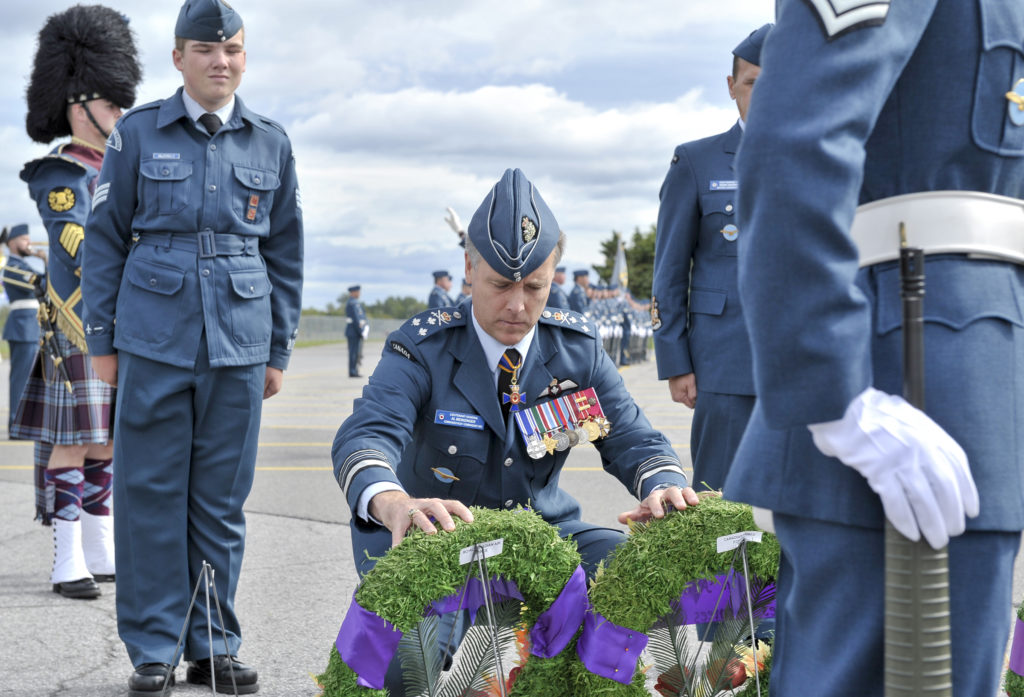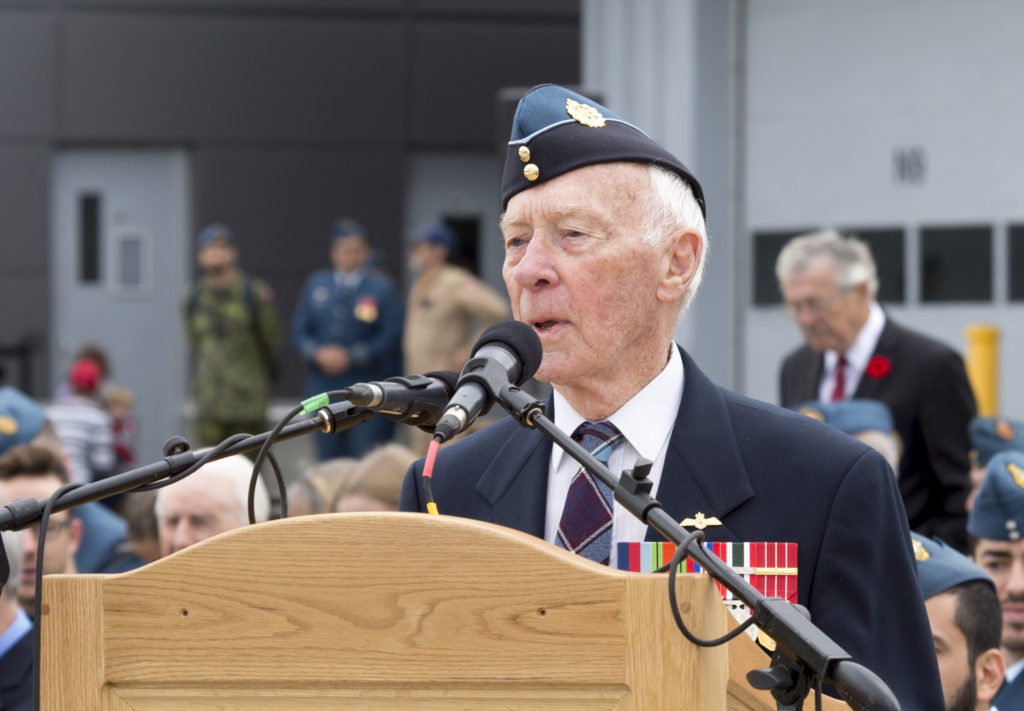Estimated reading time 6 minutes, 6 seconds.
On Sunday, Sept. 15, 1940, the decisive engagement of the Battle of Britain took place in the skies over southeast England.

The Crucible of War: 1939-1945, the third volume of the official history of the Royal Canadian Air Force (RCAF), describes how the day unfolded.
“On Sunday, 15 Sept. — the high point of the battle by most accounts … the Germans launched an attack on London by 123 bombers, escorted by over 650 fighters. At 1100 hours, radar picked up enemy formations gathering over Boulogne and Calais [in France], and the bombers were under constant attack from the time they crossed the English coast. Of the 24 squadrons scrambled to counter this raid, all but two managed to engage the raiders…”
The Luftwaffe returned the next day but the Royal Air Force had gained the upper hand and continued to hold their advantage. As the German air force had failed to establish air superiority over the English Channel and the landing beaches of southeast England, Hitler decided, on Sept. 17, to postpone the planned invasion of Great Britain.
Although engagements continued, the Luftwaffe attacks became fewer. On Oct. 12, Hitler advised his service chiefs that the invasion had been put off until spring. However, his thoughts had turned towards Russia and an invasion was not seriously considered again.
As the autumn weather worsened, the Battle of Britain gradually drew to an end. The Crucible of War continues, “The Germans having given up on invading Britain, any serious aerial fighting to be done during daylight hours would have to take place over occupied Europe. Fighter operations were about to enter a new phase, which in which the RAF and the RCAF would — for good or ill — take the war to the enemy.”
On Sunday, Sept. 15, 2019 — exactly 79 years after that decisive day — RCAF personnel across Canada gathered to mark the anniversary of the Battle of Britain. In Ottawa, the national ceremony was held at the Canada Aviation and Space Museum on the site of the former Rockcliffe air base.
“Why do we continue to gather here, 79 years later, to honour the aircrew and the groundcrew of the air forces who turned the tide during the Battle of Britain?” asked LGen Al Meinzinger, commander of the Royal Canadian Air Force, during the national parade. “What difference does it make to our lives today?
“Clearly, our lives might be very different today, if they had not answered the call and fought against oppressive forces. But we also recognize that the heroes of the Battle of Britain and all those who have served — and continue to serve, like those of you on parade today — since the dawn of military aviation inspire us … to be better members of the Royal Canadian Air Force, better Canadians, and better human beings.”

Retired Maj Des Peters, who served with the Royal Air Force, the Royal Canadian Auxiliary Air Force and the RCAF, read the Act of Remembrance, which is a stanza from Laurence Binyon’s poem For the Fallen. Cadet Sgt Elizabeth Johnson responded with the Commitment to Remember.
The Act of Remembrance
They shall grow not old, as we that are left grow old.
Age shall not weary them, nor the years condemn.
At the going down of the sun and in the morning,
We will remember them.
The Commitment to Remember
They were young, as we are young,
They served, giving freely of themselves.
To them, we pledge, amid the winds of time,
To carry their torch and never forget.
We will remember them.
The ceremony was punctuated by flypasts of war-era aircraft from Vintage Wings of Canada, including a Harvard, a Spitfire, a Mustang and a Kittyhawk. Senior personnel from the Department of National Defence, Canadian Armed Forces, and Veterans’ groups, as well as international representatives, laid wreaths in memory of “The Few” to whom so many owed so much.
Those few brave airmen, as the defence attaché from the Embassy of the Republic of Poland, Navy Capt Krzysztof Ksiażek, reminded personnel on parade and spectators, changed history. “As history revealed,” he said, “the air victory of the Allies was the turning point in the war when Hitler’s military ambitions were defeated. It gave hope and strength to Europe, starting the long process of liberation.”
And every year, the RCAF pauses to remember their valour and give thanks for their sacrifice.








